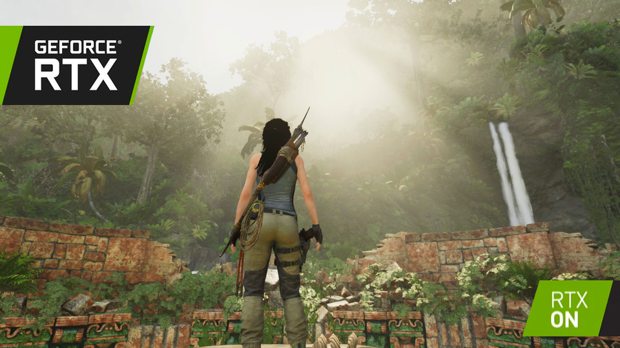We've known that Nvidia was planning a big push for real-time ray tracing in games since March when the first demos were shown off. This all came to fruition last night with the launch of the new RTX 20-series, which will support ray-tracing in several upcoming games. At Gamescom this week, some people have had the chance to try Shadow of the Tomb Raider with RTX switched on but unfortunately, these effects do seem to come with a hefty performance penalty.
German site, pcgameshardware.de, posted a video today showing Shadow of the Tomb Raider running on an RTX 2080Ti graphics card with the frame rate counter switched on. The game is running at 1080p resolution with RTX effects switched on. In the video, we see frame rates between 30 and 50 frames per second, with most of the gameplay settling in the mid 30s to mid 40s range. The folks over at PCGamesN also had some hands-on time with the game, observing frame rates between 33 and 48 frames per second.
Obviously there are a couple of caveats to keep in mind. Shadow of the Tomb Raider isn't an entirely finished game yet and the RTX 2080Ti would have been running on pre-release drivers. Finally, we don't know what all of the graphics settings were set to, outside of 1080p with RTX on. Still, it is difficult to believe that a brand new £1100 graphics card would struggle at 1080p.
What this does show is that while real-time ray-tracing is very impressive, it is also very taxing. We'll be looking forward to analysing final performance once these GPUs are out in the wild and more games launch with RTX support.
KitGuru Says: I was very impressed by all of the ray-tracing demos shown last night but RTX graphics cards are certainly an expensive investment. I'll be looking forward to seeing final reviews though. Are any of you thinking about upgrading?
 KitGuru KitGuru.net – Tech News | Hardware News | Hardware Reviews | IOS | Mobile | Gaming | Graphics Cards
KitGuru KitGuru.net – Tech News | Hardware News | Hardware Reviews | IOS | Mobile | Gaming | Graphics Cards



